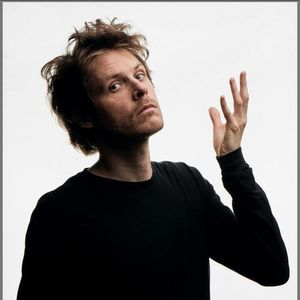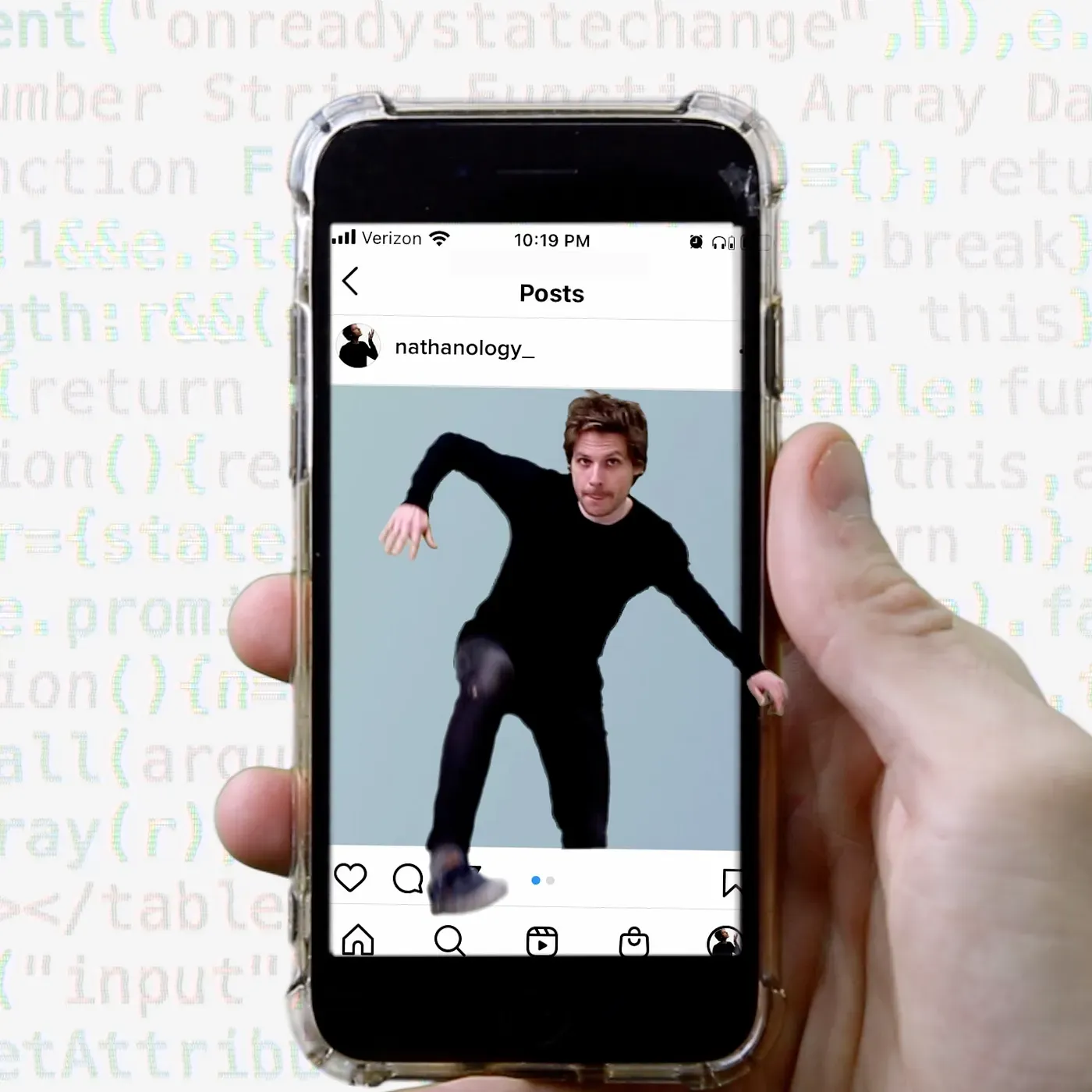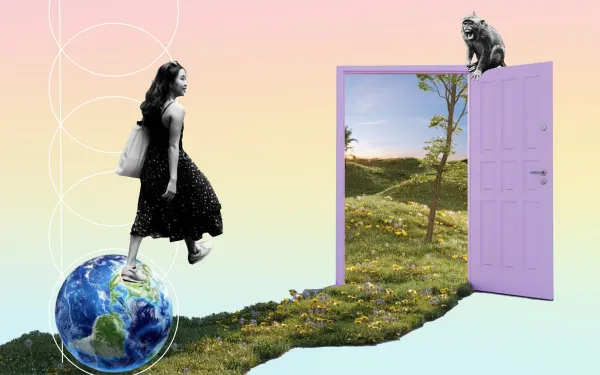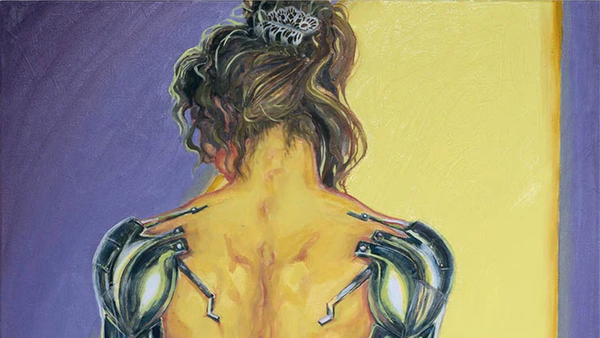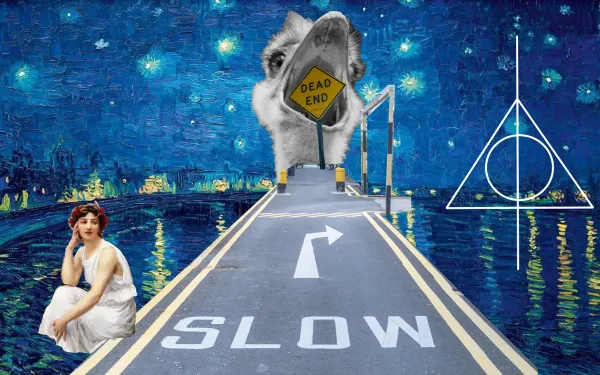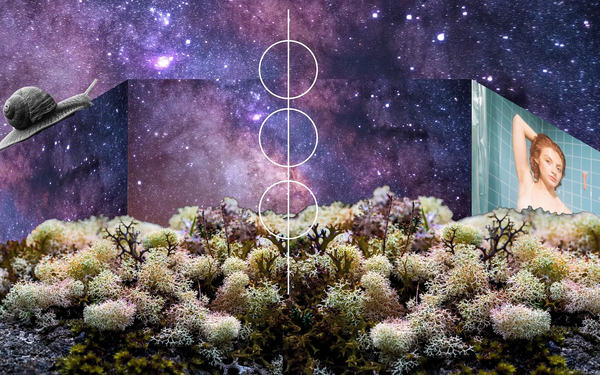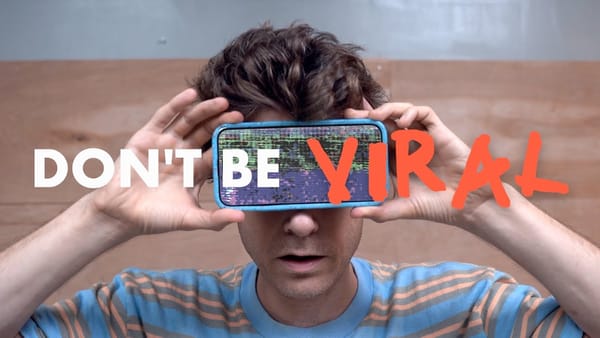My video below explores the question of whether we’re living in a computer generated Simulation.
Living in a Simulation: Philosophy Rap (3.5 min)
Interestingly, one of the most common comments on the video was along the lines of, Yes we ARE in a simulation — but so what? It changes nothing. It doesn’t matter; what difference does it make?
Even observations like — “AI is taking over” — “Everything is changing so fast” — “Soon we won’t know the difference between reality and the virtual, so on, etc.” — even statements like these become so self-evident that they seem vaguely unreal, and vaguely annoying, even if they’re urgent and sincere. They feel like mere echoes of something more real — and in fact they are — the echo of movies, shows, articles and posts that have imagined such things in manifest form. The sci-fi future feels more real than the present, and in a sense it is.
We are estranged from our own strangeness — even the strange fact that our present existence is somehow unreal, sinks into the everydayness of the strangeness’ acceleration.
One way of referring to this phenomenon is Hyperreality. Unlike forms of Simulation theory that say we’re *literally* or *physically* in a computer-generated simulation, the Sim-theory of Jean Baudrillard, whence this term originates, suggests that in our technologically-induced state of “Hyperreality” we are in simulation because we’re unable to distinguish real existence from the realm of images and representations that surround us. The symbols and ideas by which consciousness would interpret what is Real are so thickly packed in our experience that we can never get through them to grasp what’s actually there. The image becomes more primary than that of which it’s an image — this is the effect of the simulacrum.
— Last night was like a movie.
— The moon is beautiful, it looks like a perfect picture of the moon.
— The beauty of your movements, when your body is in my bed, seem to imitate the pornography in the catalogues of my mind.
The rectangle of the post that what you’re looking at now could become, seems to hover with partial opacity at the edges of your gaze. Life itself becomes a sort of TikTok dance, an impression of something more primary, an echo of an original sound whose source has been lost. Life remains good — but precisely in proportion as one is willing to admit that it is not life at all.
Is this bad?
Would there be anything “wrong” with being near-permanently plugged in to a virtual reality, like in Ready Player One? Where the material world which is the primary layer, your biological substratum, is displaced by a layer of voluntary simulation that becomes primary in your experience?
In Ready Player One, the physical world has been ecologically devastated, such that the virtual one is preferred as a locus of escape. But is entering a simulation inherently escape? How does one distinguish between Escape and Adventure, when assessing the aesthetic or moral value of an experience? If holding this phone, or having these headphones on your ears, these transporting appendages that separate you from your world, do nonetheless bring your consciousness nearer to the experience of the ultimate — the Mystery of it all, the weird goodness of Being — if they do connect the image of me to you in this moment, is their value not as vivid as any other lived thing?
And if it is the case that our habituated desires have induced us to disastrously interfere with our world, such that other creatures here are oppressed by our activities, is it not perhaps preferable that we forge our experience in the trans-spatial dimensions of a virtual world, leaving more space and energy for other organisms to self-actualize? In the digital dream-years of the pandemic, the strangling embrace of our energy grids somewhat loosened their grasp on the non-human world. Pollution decreased; experience did not. If experience is what we’re after, as an end in itself, and we also want to economize its material cost, is a simulated world more ecologically sound?
Are you down with the Meta-verse, or are you Meta-averse,
And does it matter if the matter you were made of first
Is made to be last as you bask in VR,
And the Earth bounces back in the places we aren’t?
Simulation theory, and virtual and augmented reality, invite us to think about Ecology Without Nature, a phrase coined by the philosopher Timothy Morton. Our distinction between the Natural and the Artificial is ultimately arbitrary — everything is Nature, insofar as everything is ultimately a matter of matter — material processes in their interrelations. Our buildings, our power plants and the microchips in our mobile devices are just much nature as our bodies, our gardens, and the mycorrhizal networks that connect living forests.
As long as we continue to psychologically sequester a sort of Disney-channel nature in our environmental thought, a place outside us, on the edges of what we’ve built, we will always remain trapped in the illusion of this difference — the illusory notion that nature can be escaped. And it’s based on this illusion, that we act out the sado-masochistic fantasy of our extractive economies — abusing the so-called “Mother” as a body of resources, and longing for those parts of her we’ve kept pure from our abuse.
This is the fundamental simulacrum that determines human consciousness: the Concept of Nature as a thing we are not — the Image of Nature as a womb we have left — which leaves us in the infantile attitude of seeking wombs of our own creation, to vanish from before the sight of selves, and our estrangement.
Our desire to create worlds within this one, games within games, is indicative of our unwillingness to realize that this is just a game, that there is no world. In this way Simulation theory is among the eldest of our insights: none of this is real, but that doesn’t mean that there is anything else. It is Hinduism’s maya, the illusory play of forms; it is lila, the play-acting drama of God. What is real is a play being acted out by God, God being the Source, the dance of the code. And so as Krishna advises in the Bhagavad-Gita, we should be attentive to the game, but play it with detachment — for a game is all it is.
Against the enlightened opinion that “there is no God, there is only the world”, there is the deeper revelation that “there is no world, there is only God” — and this is far more terrifying, for it makes us realize we have the responsibility to undertake our own godlike management of the interrelations that constitute our being — to program ourselves; the only thing we can’t do is program our way out, for there is no way out; there is no outside — there are only these relations, in this House of our Lives.
Ecology is literally the “study of the House” — the logic of the home, and the homes within homes of which the cosmos is comprised. Simulation theory suggests simulations within simulations; but the infinitude of these nested series makes their differentiation lose all meaning. For if all there is, is home, home and wilderness are the same. And so are simulation and reality. Pretending there’s a difference is precisely the game we play.
This is not to say that we shouldn’t play the game. The dance is one of matter separating from itself, simulating itself in the illusion of an otherness. The splitting of a cell is precisely what allows it to dance with someone else and build something more than itself. This illusion of distance — this dance of splitting, this provisional separation of the copy from its source — is the perennial precondition for the richness of existence.
In this way moral responsibility becomes a matter not of Right or Wrong, Or Real-or-Unreal — but of aesthetic desire: what is the desired relation-shape of your world-that-is-not-a-world? There is very un-fun stuff going down on your simulated layer — are you okay with that, or not? You have no choice but to play House in this simulated Ecosphere — but perhaps you can choose how you play.
And even if we can’t choose — if we’re effectively NPCs — we may still be free to realize our role: a freedom that consists in realizing that we are attributes of the only Player there could possibly be — the irreducible force, the inexhaustible Substance, the Living Mystery that powers the apparently deterministic machine, the Absence that hides in the Presence of Being. Benedict Spinoza defined human freedom not as something you do, but as your capacity to consciously realize the part your play in the cosmic process we collectively are.
The world is a game. But why play your part? Why be conscientious at all? Why be conscious at all? Why not just die?
Another comment I received said this:
If this is a simulation, how do I overcome the feeling of wanting to pull the plug, like a lot?
It may be that there is no Reason not to do so, just as there is no Reason to keep playing a game you don’t like. But if we’re in Simulations within Simulations all the way down, you are confronted with the radical possibility that there is no escape — there is only the Unity of the nested series in the infinitude of being. Hence, there is more to be gained from leaning in to the present game, as the node of experience that you are, than leaning away — more to be gained because there is more fun in running-toward than running-away.
Nobility is the willingness to lean in to being for the sake of increasing the experiential intensity of your little share of the whole, a gesture by which the cumulative experiential value of the multiverse is increased. If you end your own life, or do ill to your neighbor, or waste the matter-Matrix of which all things are made, you diminish nothing, for all elements are recycled — whether those elements are atoms or code. But the boon of this existence is that you have the opportunity to add to its value, by obeying the strange desire to be present and act. You may order your programming in accord with your desire — which is the same as saying, meditate on the program that you are. You may collaborate with others on a brand new creation — which is the same as saying, recognize yourself in them, as together you cultivate what’s already here.
Recently, “Here” sometimes seems like the End of the World — perhaps it has always seemed that way. The end of the world is the world of beginning, as each simulation restarts and recurs. But it may be becoming increasingly difficult to focus on the Eternal, which is the solace of the Simulated — to dwell in the stillness that underlies the code. There is so much noise, there is so much static, so many copies of copies, reposts and shares, that the share of silence seems ever diminished, and little peace is left on this simulated layer.
There is only relations — how do we want to relate? This is Simulation Ecology. Climate has always been ‘changing’ — now it is changing in a way that diminishes the experiential totality of living beings within our perceptual sphere — what do we want to do about that?
This is what it means to be a responsible simulation: lean in. Lean in to the Ecos — Play House. Play House well. Evaluate whether what you simulate is an Adventure or an Escape. With the same love with which you play the games you choose, play the game that you are. When you choose to enter a new simulation, strive to integrate the previous layers. Be a good player on this layer; take care of this layer; if possible, grow your own food, and compost on this layer. — Not because it’s right, but because it makes the game better.
If it’s all strange and all somehow unreal, why does it matter? Why not let the game end, indifferent to its matter?
Precisely this strangeness justifies us — the strangeness of the other, which is the strangeness of ourselves — we meet ourselves simulated in the adventure of our encounters. We encounter each other as NPCs, but NPCs are often messengers. Each messenger is an Angel — a strange messenger from God, whose message is Love, and to continue the game — play the game for its own sake — make it Real in your choices. Embody God renewed in your true Simulations. Simulate the divine in the uniqueness of your individuality. There is no place to run from the mirror of this moment, a mirror that can’t but reflect your divinity.
Which path of the game do you want to take? It’s easy not to care about the world you’re inside of, when the predominant programming makes you want to seek escape — but the deeper programming realizes that there is no escape. The only way out is through — the only way to win is to create the game anew, and be recreated in it, in the faith that it is good.
The only way out of the Simulation is through —
To know that you’re in it — it’s your home. Make it new.
It’s a game; you are saved. The illusion is true.
It is good. You are here. The Player is you.

